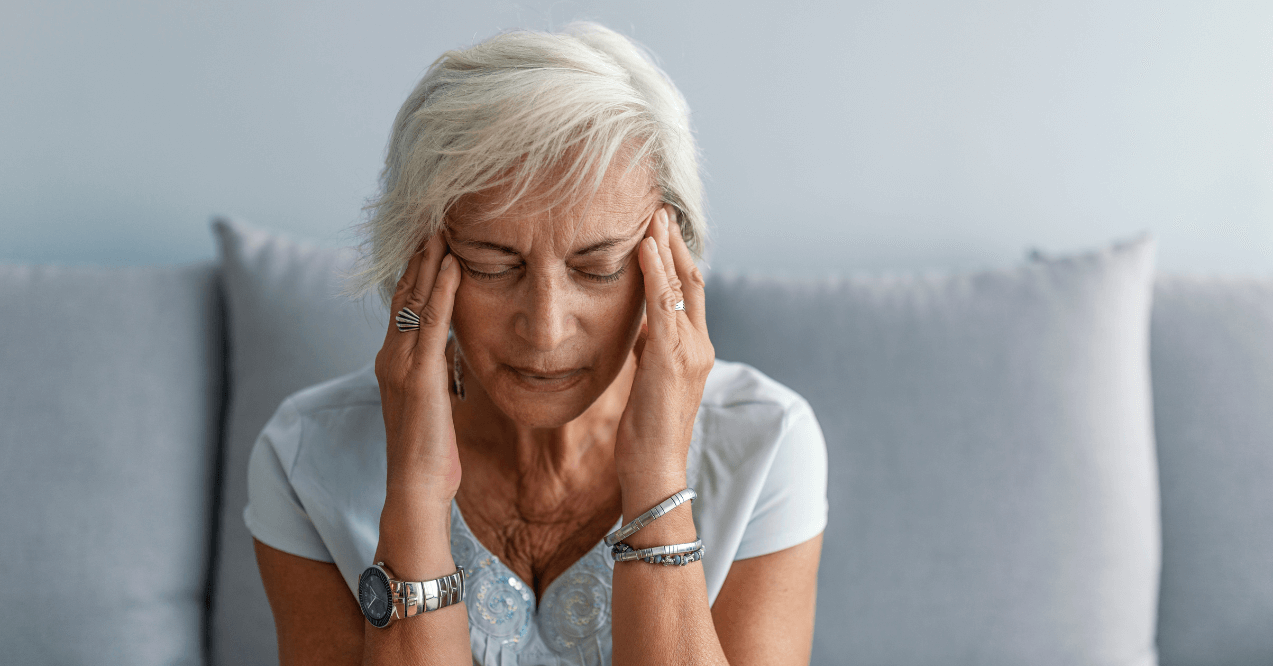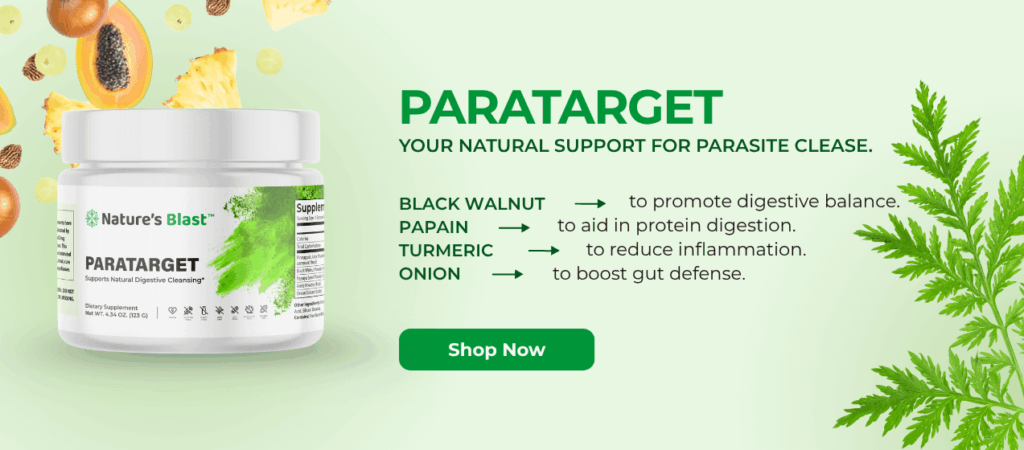Common Parasite Die Off Symptoms and How to Support Your Body
Medically reviewed by our experts


Parasite die off symptoms may be challenging to navigate without proper guidance. When starting a parasite cleanse, your body goes through various changes as it works to eliminate these unwanted organisms. This article provides a clear roadmap for what to expect and how to support your body through this process.
What Is Parasite Die-Off?
Parasite die-off occurs when parasites break down as part of a cleanse or anti-parasitic protocol. As they decompose, they release toxins such as acetaldehyde, ethanol, and ammonia, along with heavy metals they may have absorbed. This sudden release triggers your body’s defense systems, leading to a temporary flare of symptoms.
This stage of detoxification process involves the liver, kidneys, and lymphatic system working together to remove toxins. As these organs filter and clear debris, some people notice swelling, skin changes, or temporary inflammation. These reactions reflect your immune system increasing its activity as toxins are released. For example, some people might ask, can allergies cause swollen lymph nodes, or why is only my left leg swelling as the body’s immune response becomes more active during this process.
Causes of Parasite Die-Off Symptoms
The timing and intensity of parasite die-off symptoms vary from person to person. When do parasite die-off symptoms start? Most people notice initial changes within 1-3 days of beginning a protocol. Three main factors contribute to parasite cleanse symptoms:
1. Cell Death and Toxin Release
As parasites die, their cells break apart, releasing stored waste and proteins into circulation. This sudden influx can briefly overwhelm detox pathways.
2. Immune System Response
The immune system responds by sending white blood cells to process the debris. This heightened defense activity contributes to inflammation and common parasite cleanse symptoms.
3. Detoxification Overload
When toxin levels exceed your body’s ability to process them, your natural elimination systems become stressed. This overload often makes symptoms more intense until balance is restored.
Detoxification Overload
When toxin levels exceed your body’s ability to process them, your natural elimination systems become stressed. This overload often makes symptoms more intense until balance is restored.
Common Parasite Die Off Symptoms

How to know if parasite cleanse is working? Certain health protocols are believed to influence the body’s detoxification process. While these symptoms can be uncomfortable, they often indicate that the protocol is effective. Here are the most common symptoms you might experience:
1. Fatigue and Low Energy
During parasite die-off, your body expends significant energy processing and eliminating toxins. Your liver works overtime to filter these substances, which may lead to temporary fatigue.
The most common signs of this fatigue include:
- Decreased energy, especially in the morning
- Tiredness after meals
- General feeling of sluggishness
These effects usually ease as your body adjusts and toxin levels begin to drop.
2. Headaches and Brain Fog
As toxins circulate through your system, they can affect your nervous system and brain function.
You might notice symptoms such as:
- Mild to moderate headaches
- Difficulty concentrating
- Short-term memory issues
Most people find these symptoms peak early and then gradually fade.
3. Joint Pain, Body Aches, and Muscle Pain
The inflammatory response triggered by die-off might cause temporary muscle and joint discomfort.
This often shows up as:
- Flu-like aches that come and go
- Pain shifting between different areas of the body
- Usually mild to moderate intensity
These aches are a sign of your body’s immune system responding to the process.
4. Skin Reaction
Your skin, as a detox organ, might react to the increased toxin load.
Reactions may look like:
- Temporary rashes
- Mild breakouts (face, chest, or back)
- Itching
Skin changes often resolve as your detox pathways clear out more efficiently.
5. Digestive Distress
The digestive system bears the brunt of parasite die-off, as it’s the primary pathway for eliminating dead parasites and their toxins.
Typical digestive reactions include:
- Temporary bloating
- Gas or cramping (often worse after meals)
- Changes in bowel movements (slower transit or increased frequency)
These digestive shifts usually indicate that your body is actively eliminating waste. That’s why some people may wonder, can parasites cause weight gain? Changes in bowel movements are common during this time, ranging from slower transit to increased frequency.
6. Mood Changes
The connection between toxin release and brain function may lead to temporary mood fluctuations.
These changes can appear as:
- Irritability, especially in the morning
- Afternoon energy slumps followed by evening spikes
- Sleep disturbances (restlessness, anxiety, or waking at night)
Emotional balance often improves once your system clears out the toxins.
7. Flu-Like Symptoms
Your immune system’s response to die-off can create symptoms similar to a mild flu.
Common flu-like effects include:
- Low-grade fever or temperature fluctuations
- Body chills alternating with warm sensations
- Night sweats (especially in the first few days)
- General malaise that comes in waves
These flu-like sensations are temporary and generally subside within days.
8. Respiratory Symptoms
Some people experience mild respiratory responses as their bodies clear toxins through multiple pathways.
Typical respiratory changes may include:
- Increased mucus production to trap and flush out toxins
- Mild cough as the airways help clear buildup
- Slight throat irritation from postnasal drip
These symptoms usually ease with proper hydration and as the detox process slows down.
How Long Do Parasite Die Off Symptoms Last?

How long do parasite die off symptoms last? Most people experience symptoms for 1-2 weeks, with intensity varying throughout this period. The timeline typically follows this pattern:
| Timeline | What Typically Happens |
|---|---|
| First 24–48 hours | – Initial mild symptoms begin – Subtle changes in energy levels – Minor digestive changes |
| Days 3–5 | – Peak intensity of symptoms – Most noticeable physical responses – Strongest detox reactions |
| Days 6–10 | – Gradual decrease in symptom intensity – Periods of improvement mixed with temporary flare-ups – Better adaptation to the protocol |
| Days 11–14 | – Significant reduction in most symptoms – Improved energy levels – More stable digestive function |
Some people might experience shorter or longer periods based on these variables. A second phase of symptoms can occur as deeper layers of parasites are addressed, typically milder than the initial phase.
How to Support Your Body Through Parasite Die-Off
Managing die-off symptoms effectively requires a sophisticated approach. Each support strategy works together to minimize discomfort and optimize the cleansing process.
Supporting Detox Pathways
Your detoxification pathways need specific support during parasitic detoxification. While natural methods form the foundation, targeted parasite detox supplements may provide additional support.
Paratarget offers a comprehensive blend of traditional ingredients like black walnut, sweet wormwood, and turmeric that work together to support your body’s natural defense mechanisms. The formula includes digestive enzymes from pineapple and papaya to aid protein breakdown, while ingredients like amla help promote a balanced internal body responses.

Also, regular dry skin brushing toward the heart helps stimulate lymphatic flow and skin detoxification. Lymphatic drainage massage can be particularly helpful during intense die-off periods. Alternating hot and cool showers stimulate circulation, while infrared sauna sessions support toxin elimination through sweat.
As your body undergoes this detox process, it’s important to pay attention to the signs your liver is healing from alcohol, as liver health plays a key role in supporting overall detoxification and can be further supported through proper self-care routines.
Reducing Inflammation
Focus on incorporating dark leafy greens daily, along with a variety of colorful vegetables. Wild-caught fish provides essential fatty acids that support the inflammatory response. Fresh herbs and spices not only add flavor but also provide natural anti-inflammatory compounds.
Prioritize 7-8 hours of quality sleep to support your body’s natural repair processes. Include regular stress reduction practices, such as time in nature or gentle movement throughout your day. Building in rest periods allows your body to focus energy on the detoxification process.
Using Binders to Absorb Toxins
Binders act as a safety net, catching toxins before they can recirculate in your system. Timing and selection of binders might significantly impact their effectiveness.
Effective Options – Activated charcoal works best for acute symptoms, while bentonite clay provides excellent digestive support. Modified citrus pectin targets heavy metals specifically. Chlorella and zeolite offer gentler, sustained detoxification support.
Timing Guidelines – Take binders away from food and supplements, spacing them 2 hours from medications. Rotate different types for best results, and increase dosage gradually. Maintain consistent use during die-off periods for optimal benefit.
Gradual Diet and Supplement Approach
A measured, step-by-step approach to both supplements and dietary changes helps prevent overwhelming your system while maintaining the effectiveness of your protocol. This careful progression allows you to identify what works best for your body.
Protocol Development – Begin with minimal doses of any new supplements or herbs. Increase amounts every 3-4 days if tolerating well. Monitor your body’s responses closely and include rest days when needed.
Diet Progression – Start with easily digestible foods and add new items one at a time. Focus on nutrient-dense options while maintaining consistent hydration. Pay attention to how your body responds to each dietary change.
Additional Strategies for Symptom Relief
Beyond the core strategies, several complementary approaches might enhance your body’s ability to handle die-off symptoms. These methods work together to provide comprehensive support during the most challenging phases of your protocol.
Daily Practices – Epsom salt baths and ginger tea may provide comfort during intense periods. Castor oil packs before bed support liver function. Light stretching and deep breathing help maintain physical comfort.
Environmental Considerations – Fresh air exposure and natural sunlight support your body’s natural rhythms. Use clean, filtered water for all consumption and food preparation. Keep living spaces well-ventilated to minimize exposure to environmental toxins during this sensitive time.
Conclusion
Parasite die off symptoms are a natural part of the cleansing process and usually show that your protocol is working effectively. While they may feel uncomfortable, they are temporary and manageable with the right strategies.
By supporting detox pathways, pacing supplements and diet changes, and easing inflammation, you can reduce discomfort while helping your body recover balance. Each experience is unique, so pay attention to your body’s signals and adjust your approach accordingly.
With patience and proper support, you can navigate parasite die-off smoothly and strengthen your long-term health.
Higher oxygen levels may create an unfavorable environment for parasites, as many prefer low-oxygen conditions. However, oxygen alone isn’t enough to eliminate parasites. A comprehensive protocol combining multiple approaches typically works best.
Signs of an effective parasite cleanse include initial symptom flare-ups, followed by gradual improvement in energy, digestion, and overall wellbeing. You might notice changes in bowel movements and temporary die-off symptoms within the first few days.
Most people notice initial die-off symptoms within 24-48 hours of starting a parasite cleanse. Early signs include mild fatigue, digestive changes, and slight headaches. The intensity typically peaks around days 3-5 of the protocol.
FAQ
References
